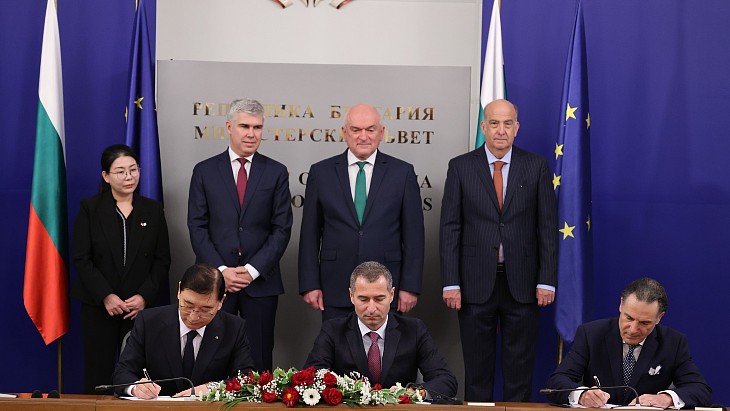Bulgaria's Prime Minister, Dimitar Glavchev, speaking at the signing ceremony, said: "Bulgaria has 50 years of experience in the safe and secure operation of nuclear facilities. Today, we are building on this experience. Our work with the undisputed leaders Westinghouse and Hyundai on this project is a serious step towards the implementation of one of the government's main priorities related to the development of nuclear energy."
Energy Minister Vladimir Malinov said: "The development of nuclear energy in strict compliance with international standards for safety and environmental protection is one of the main priorities of the government. Our consistent efforts and active work together with our partners at Westinghouse and Hyundai in fulfilling this priority have led to today's result - the signing of an engineering contract for the new facilities. This is a key stage that makes the process irreversible."
He added that signing the contract meant that schedule and finance details would be firmed up within 12 months for the new capacity.
Kozloduy units 1-4 were VVER-440 models which the European Commission classified as non-upgradeable and Bulgaria agreed to close them during negotiations to join the European Union in 2007. Units 5 and 6 feature VVER-1000 reactors that were connected to the grid in 1987 and 1991, respectively. Both units have been through refurbishment and life-extension programmes to enable extension of operation from 30 to 60 years. The country's two operable reactors generate about one-third of its electricity.
The aim is for the first new Westinghouse AP1000 unit - unit 7 at Kozloduy - to be operational in 2035 and the second one - unit 8 - to be operational in 2037. The 2300 MWe capacity of the two new units would exceed the 1760 MWe capacity of the closed first four units. The Bulgarian government has also said that further units will be needed to replace units 5 and 6 by 2050.








_94566.jpeg)






